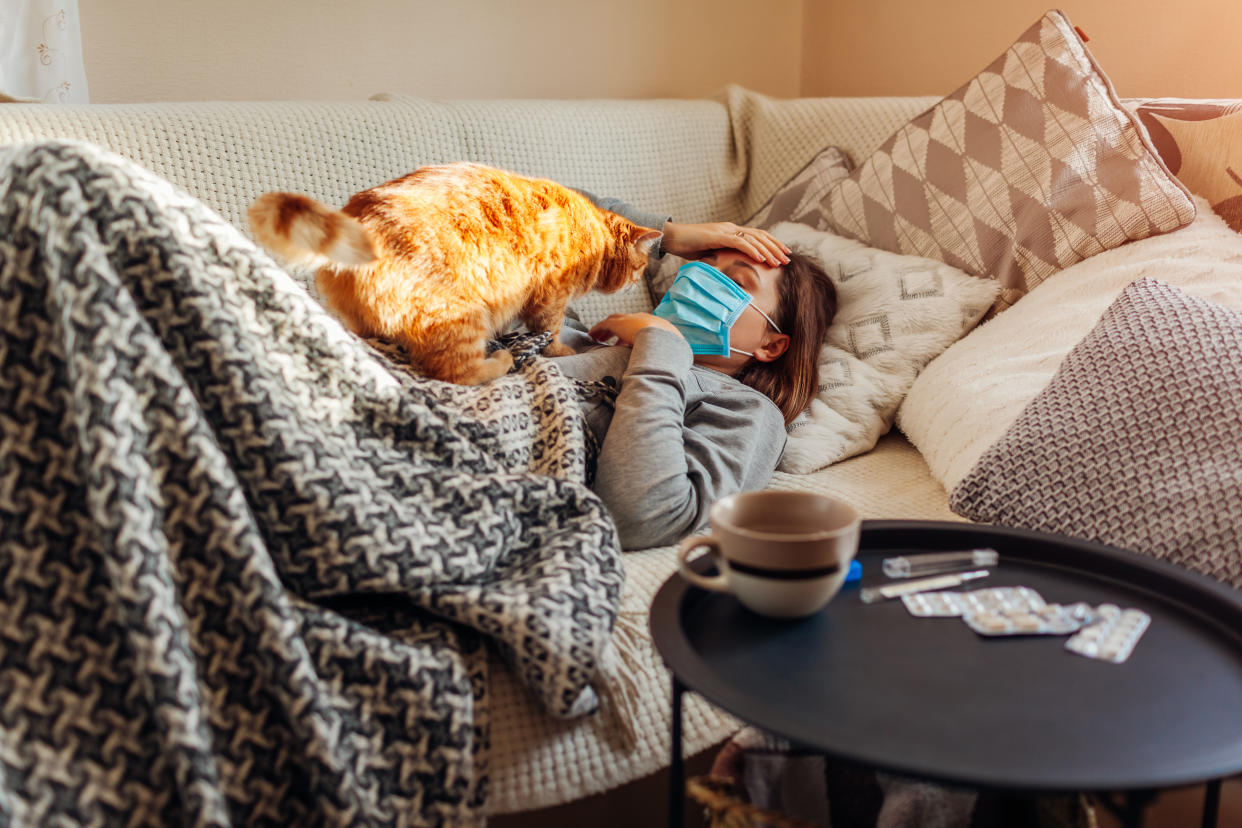Coronavirus: Why are we waking feeling groggy during lockdown?

The UK’s lockdown has forced many to adjust to a slower pace of life as officials try and get a handle on the coronavirus outbreak.
Boris Johnson has enforced extreme restrictions that only allow Britons to leave their home for “very limited purposes”, such as for exercise or to go to work if unable to work remotely.
While NHS staff and care workers are working harder than ever on the front line, many professions are setting up office in their kitchen.
Ditching the dreaded commute and enjoying a longer lie-in should be leaving us feeling bright eyed and bushy tailed.
As we prepare for another day in lockdown, however, many have never felt so groggy.

Coronavirus: Why are we waking feeling groggy during lockdown?
With socialising off the table, day-to-day life may be feeling pretty monotonous.
Many are trying to embrace the extra time to read, watch films and complete odd jobs around the house, however, the disruption to our routine can affect how we sleep.
Latest coronavirus news, updates and advice
Live: Follow all the latest updates from the UK and around the world
Fact-checker: The number of COVID-19 cases in your local area
Explained: Symptoms, latest advice and how it compares to the flu
“If you’re feeling groggy, it’s likely because your routine has changed and you’ve disturbed your circadian rhythm [body clock],” sleep expert Dr Neil Stanley told Yahoo UK.
Our highly-sensitive body clock can also be affected by reduced physical activity and vitamin D exposure as we spend more time indoors.
Britons are permitted to exercise outdoors, but must maintain a two metre (6.5ft) distance from anyone they do not live with.
Health officials have recommended people take a vitamin D supplement to keep levels topped up during lockdown.
Reduced social contact may also be leaving many feeling unstimulated mentally.
“Humans are hardwired to be social beings and we thrive on social connection, co-operation, competition and love,” Liz Ritchie, psychotherapist at St Andrew’s Healthcare, previously told Yahoo UK.
“In the midst of lockdown, our lives have changed immeasurably and we find ourselves living a kind of surreal existence dominated by isolation, high alert, anxiety and unease about what might happen as a result of this pandemic.
“The intense anxiety about the uncertainty can cause us to feel tired, reduce our energy levels, cause physical or mental exhaustion and a lack of motivation.”
Coronavirus: How to wake feeling less groggy in lockdown
A lie-in mid-week may feel unnatural, but could be key to starting the day with a spring in your step.
“Interestingly, 23andMe recently revealed our average natural genetic wake up time is 7.55am, but it hasn’t always been possible to sleep in that long as we generally need to be out of the house by then to get to work,” said Dr Stanley.
“Now we’re in lockdown for a prolonged period of time, those who can should try to take advantage of a little lie-in as it may improve how you feel in the mornings.”
Factoring in your new lie-in, try and stick to a set bed and wake time.
“Your brain will soon anticipate your waking and be ready to hit the ground running,” said Dr Stanley.
“This means you won’t have to rely on an alarm clock, which startles you from sleep and increases stress levels.
“I’d also recommend drinking a glass of water first thing to help rehydrate you in the morning and getting exposure to sunlight soon after waking to help you feel more sprightly.”
If you find your sleep is being disturbed, taking a break from all the doom and gloom could put you in a more zen state of mind.
“Make sure you take your ‘laughter supplements’”, Dr Meg Aroll, chartered psychologist for Healthspan, previously told Yahoo UK.
“This can be whatever brings a smile to your face such as silly cat videos on YouTube, a comedy boxset on Netflix or organising a ‘dad joke’ competition with friends on WhatsApp.
“Laughter boosts mood and can give us respite from intrusive and negative thoughts.”

What is the coronavirus?
The new coronavirus is one of seven strains of a virus class that are known to infect humans.
Others cause everything from the common cold to severe acute respiratory syndrome (Sars), which killed 774 people during its 2002/3 outbreak.
Since the coronavirus outbreak was identified, more than 3 million cases have been confirmed worldwide, according to Johns Hopkins University.
Of these cases, over 896,100 are known to have “recovered”.
Globally, the death toll has exceeded 211,300.
The coronavirus mainly spreads face to face via infected droplets expelled in a cough or sneeze.
There is also evidence it may be transmitted in faeces and survive on surfaces.
Symptoms include fever, cough and slight breathlessness.
Early research suggests the infection is mild in four out of five cases, however, it can trigger a respiratory disease called COVID-19.
The coronavirus has no “set” treatment, with most patients naturally fighting off the infection.
Those requiring hospitalisation are given “supportive care”, like ventilation, while their immune system gets to work.
Officials urge people to ward off the coronavirus by washing their hands regularly and maintaining social distancing.




